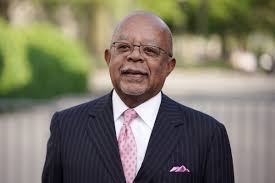In a tiny town in West Virginia, Pauline Gates was clear about this: Her two sons would be doctors.
One, Dr. Paul Gates, is, indeed, an oral surgeon. But the other descended into academia and fame.
That’s Henry Louis Gates Jr. (shown here), who is now one of PBS’ biggest stars. “It was a fantasy of mine,” Gates said. “I didn’t even realize that it was; I didn’t tell anybody.”
But here he is, filling our TV sets. PBS has been re-running his “Finding Your Roots” at 8 p.m. Tuesdays; it will have a fresh batch in January.
Then there are the documentaries. His last one, about the Black church, has an Emmy nomination; his next one – on the fabric of Black society, from barbershops and beauty salons to clubs and colleges – starts Oct. 4.
That puts Gates in a world that impressed him long ago. “I fell in love with documentary film watching Kenneth Clark in ‘Civilisation’ in 1969 and 1970 and then Jacob Bronowski in ‘The Ascent of Man.’”
At the time, he was dutifully a pre-med major at Yale. He switched to history (graduating Phi Beta Kappa), tried law school for a month and then became a Black-history expert.
In a way, he’s doing the same thing his mother did. She was a cleaning lady, married to a mill worker, but she was also the biographer of the Black community, carefully crafting obituaries.
This was in Piedmont, “an Irish-Italian paper-mill town,” Hampton said. When he was born, it had 2,565 people; that’s now shrunk to 716, about 140 of them Black.
When he was young, there were perhaps 300 Blacks, confined to two streets. “I had this nurturing security of the Black world – the Black church, the Black mill picnic, the Black 4th-of-July picnic, all these Black fraternal organizations, as well as the crossover experience in the white schools.”
Shortly before he reached 1st grade, the Piedmont schools were integrated. His academic ascent began.
As the first Black winner of a Mellon Scholarship, Gates got his doctorate at Cambridge. He was a lecturer in Yale, then on the faculties of Cornell, Duke and Harvard. “When I was chair of the (African American Studies) department, we created a Ph.D. program. Now our Ph.D. students have tenure.”
Hampton got there in 1991 and soon visited the Boston headquarters of Henry Hampton, creator of “Eyes on the Prize,” an acclaimed civil-rights documentary.
“At the end of the day, I was hooked …. I said to Henry, ‘You know, in England they have guys like me, academics, be presenters in front of the camera.’
“He said, ‘Yeah, that’s in England.’”
It was an English producer who called with an idea – a three-week train trip in Africa with his then-wife and their daughters, then 14 and 12.
“The whole conceit of it was the professor of Afro-American studies at Harvard was taking his mixed-race daughters to Africa to find their roots and them (saying), ‘Our roots are in Cambridge, Mass. I want a Big Mac.’ The Guardian (called) it ‘National Lampoon Goes to Africa.’”
Serious PBS films followed, which Gates now sees as a key piece of academia. “The companion book on Reconstruction … sold 100,000 copies. That’s great, but millions of people saw our documentary series on Reconstruction …. We had 4.2 million people watch ‘The Black Church.’”
Alongside the heavier works, his “Finding Your Roots” is a journey through celebrities’ backgrounds.
In the upcoming season, for instance, Joe Manganiello (“True Blood”) saw a photo of the German officer who apparently impregnated his great-grandmother after she fled from Armenia. “That was a really profound moment for me,” Manganiello said. “And then to share that with my mother.”
Many other surprises have surfaced … including when Gates learned that his fourth great-grandfather “was one of the 5,000 or so Black patriots in the Revolutionary War.” Two centuries later, that soldier’s descendant would prepare her sons to become doctors.
